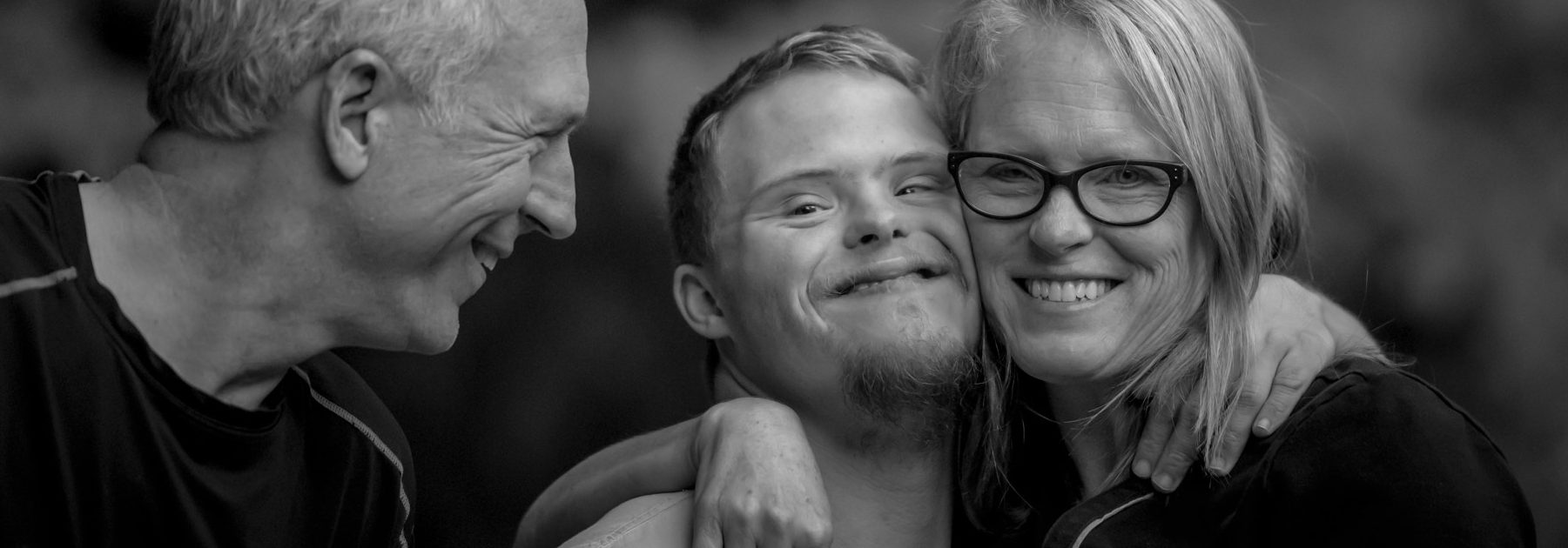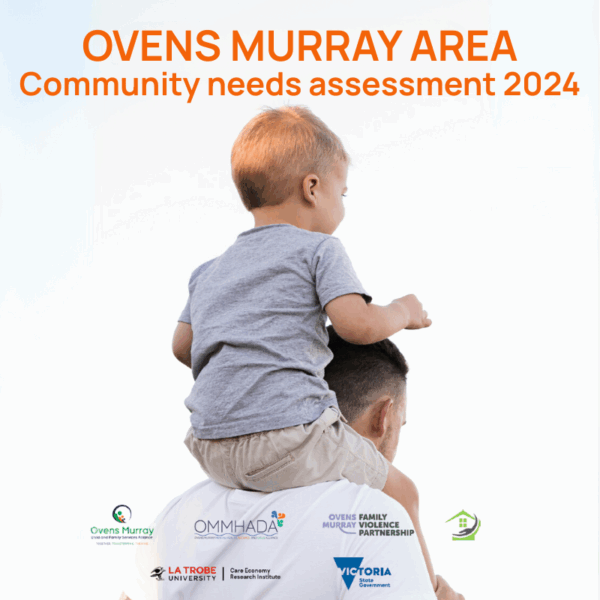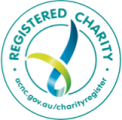Our Alliance members are here for children, young people and their families across the Ovens Murray area who would benefit from child and family support.
The 11 DFFH Family Service funded agencies in Ovens Murray work together with the Department of Families, Fairness and Housing (DFFH) (Child Protection and Agency Performance and Systems Support) and Family Safety Victoria (Ovens Murray The Orange Door).
The OMCFS Alliance believes that families in Alpine, Benalla, Indigo, Mansfield, Towong, Wangaratta and Wodonga have a right to access appropriate and timely support and assistance, which is culturally responsive. We provide a platform of local services aiming to connect, enable, strengthen, safeguard and restore families.

Ovens Murray Communities Speak – Local Research Sheds Light on Social Needs
The launch on May 27th of the Ovens Murray Area Community Needs Assessment Report 2024 marked more than the release of a document—it signalled a turning point in how the region understands and responds to complex social issues across North East Victoria.
The report was commissioned by the Ovens Murray Child & Family Services Alliance and the Ovens Murray Mental Health, Alcohol and Drug Alliance, with support from the Ovens Murray Family Violence Partnership and the Ovens Murray Homelessness Network.
It provides the first comprehensive, locally grounded snapshot of the social challenges impacting children, young people, and families in the region.
Developed by La Trobe University’s Care Economy Research Institute, the research combines local data, frontline service insight, and community experience to explore four interconnected areas of need: mental health, family violence, alcohol and other drug use, and homelessness.
The project is supported by the Victorian Government.
Kath Kerin, Executive Director Child Family and Community Services Upper Murray Family Care and Executive Chair of the OMCFSA, highlighted the strength of local partnerships: “This work is the result of a genuine commitment to collaboration across sectors. We’ve built strong relationships, aligned our practice, and focused on how to better support children, young people and families across Ovens Murray. This report gives us a shared foundation to move forward—together.”
Key Findings Include:
- Benalla shows the highest rates of family violence and alcohol-related incidents, alongside entrenched socio-economic disadvantage.
- Wangaratta is experiencing a sharp rise in ambulance attendances related to alcohol and worsening mental health concerns—especially among young women.
- Wodonga reports the region’s highest rate of homelessness, with rapid population growth placing further pressure on already stretched services.
- Wodonga also reported notably higher rates of mental health issues, particularly among young women.
Researcher Kate Syme-Lamont from La Trobe University reflected on the complexity uncovered through the process: “We were tasked with understanding some of the most complex issues facing this region—and what emerged was a deeply interconnected picture. These challenges don’t exist in silos. The research shows that mental health, homelessness, alcohol and drug use, and family violence all intersect in profound ways. Place-based investment, integrated planning, and service systems that work together can help communities design strategic responses and create meaningful change.”
Despite the challenges, the report also highlights local strengths: deep inter-agency collaboration, a commitment to evidence-based action, and a shared will to improve outcomes across the region.
The full report is now available online. It is intended as a practical tool for service providers, policy-makers, funders, and all community leaders committed to strengthening the health and wellbeing of the Ovens Murray region.
Read the full report here:
OVENS MURRAY AREA community needs assessment 2024
WATCH FULL WEBINAR LAUNCH HERE
🔗 To learn more about the Ovens Murray partnerships, visit:
One child, one family at a time, we are positively reshaping lives to create stronger regional, rural, and remote communities.






